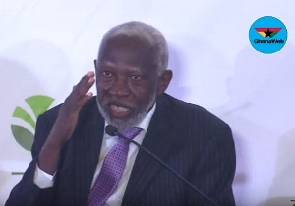Government and its related bodies have been urged to set easy and achievable policies and targets to further propel the nation into effective and efficient development.
The advice came during the third lecture organised as part of the 1st anniversary celebration of the Northern Accra Diocese of the Methodist Church of Ghana.
The lecture was delivered by Professor Stephen Adei, Board Chairman of the National Development Planning Commission (NDPC), on the topic: ‘Ghana’s Development History and Current Agenda: Are we Progressing?’
Prof Adei said Ghana through several transitions of government, had undergone tremendous change which brought about numerous developmental changes.
He mentioned leaders such as Osagyefo Dr Kwame Nkrumah, Professor John Evans Attah Mills and the current president, Nana Addo Dankwa Akufo-Addo, who had brought changes that had benefited the country.
Prof Adei noted that in the time of Nkrumah, many of his policies had proven fruitful because they were consistent and remained true to their goals, never wavering from their target despite changes in time and personnel.
He stressed that it was through consistent policies that economic growth could be achieved.
Reflecting on the history of Ghana, Prof Adei stated that despite the growth of Ghana’s economy in the past, there were still many achievement that we could have been made.
“We must institute policies that are easily achievable and highly effective, and as Ghana is a land suitable for agriculture, we should try to focus heavily on agriculture,” Prof Adei added.
In moving the economic development of Ghana forward, he stressed the need to ensure that the jobs available in agriculture were vast and profitable, adding that, “if we are able to properly develop our agriculture we would become self-reliant in food and be able to export our produce to the whole of Africa.”
General News of Saturday, 30 November 2019
Source: ghanaiantimes.com.gh
Government urged to set achievable policies to propel development
Entertainment












